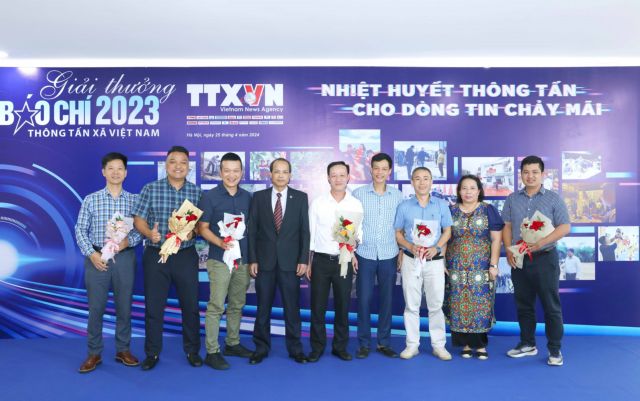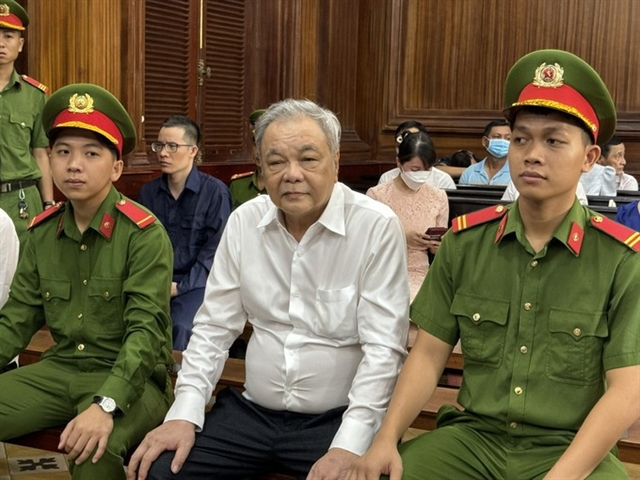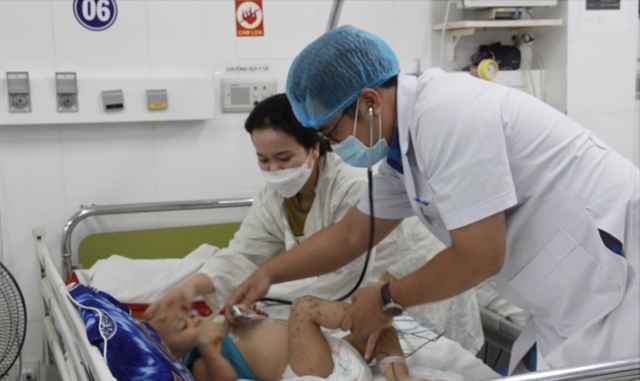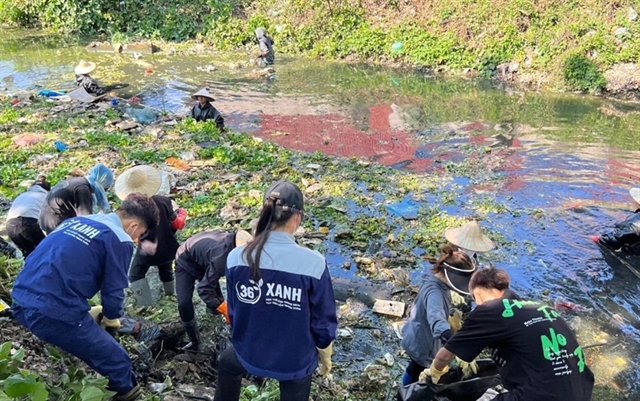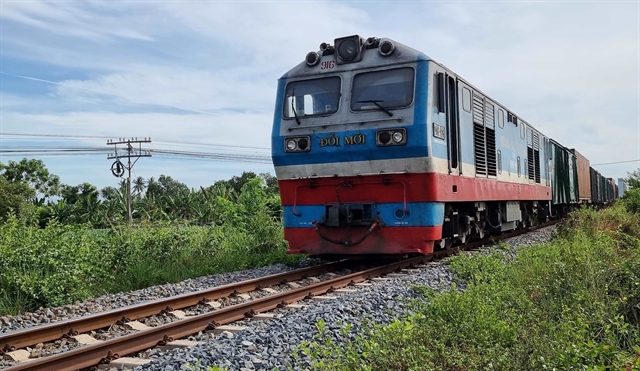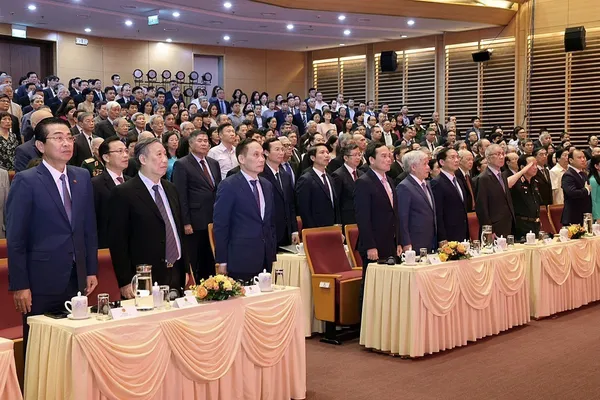

A short story by Le Minh Khue
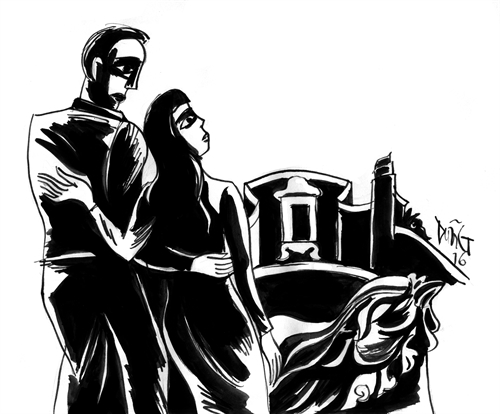 |
by Lê Minh Khuê
“Trang, come with me to a pretty distant place! I’ve got something to do there!” Tú said suddenly after phoning Trang.
Trang knew that Tú was going to South America where his parents were the members of a peace organisation. Before going, Tú wanted to visit a special place.
“OK. I’m not busy right now. I’m sitting idle waiting for a job, you know!” Trang replied.
Trang and Tú used to be childhood friends in a residential quarter. Trang was a bit older than Tú. Trang was 12, and Tú was 9.
At that time, when Trang’s parents got divorced, Trang went to live with her mother in a district town on the other side of the river. Trang and Tú had not seen each other for a long time, all throughout Trang’s secondary and university education. But now Tú recognised Trang right away, thanks to the tiny scar at the end of her left eyebrow. It was their childhood memory. While playing hide and seek, Trang fell and suffered an injury. There was a lot of blood. And the scar was the result of it.
“I did not hate you at that time. It only helped me remember our childhood. Now I’ve gotten married….” Trang said, looking towards the distance.
Tú was now a handsome man. Trang stood there, looking at him affectionately.
“I’m taking a post-graduate course and after that I will go to a faraway land. I study politics, even though I am very good at banking and securities,” Tú said.
“What? Are you crazy?” Trang said in great surprise. “Oh my God! You’ll get lonely there,” she cried, taking the arm of the young man.
After a moment, Trang continued:
“My husband is gone! He threatened me, but he came back at midnight and embraced me, begging me and apologising to me, but I did not give in. How could I live with him all my life? The next morning, he had gone back to his mother.”
Tú stood close to Trang, throwing his arm around Trang’s neck. Right at that moment, the sky seemed to be undergoing a miracle: it was larger, bluer.
**********
“Come with me for a few days to a distant land….” Tú said.
Then they both hit the road and took a train to the central part of the country. Tú did not tell Trang the reason. Trang knew it was his personality, so she did not ask out of curiosity. The train rumbled on through the night. Trang leaned her head on Tú, sleeping. They looked like a happy couple.
When the train gradually pulled up to the station and finally stopped, they both got off and rented a clapped-out old motorbike. Then they drove west. Along the way, an old battlefield and tanks with rusted guns were seen buried in the ground; bunkers dotted the area. The land here was once soaked with blood. Behind a hill there was a village. It seemed that the village had been revived after those fierce war years. Houses still looked new. Trees were not very tall, and the road was also new. An ancient house was left standing there, braving bombs and shells. Tú told Trang this house was where Emperor Hàm Nghi had slept overnight while hiding from the French.
A man of about 70 jumped for joy upon seeing Tú emerge from the cassava garden.
“Are you coming home?”
Trang looked at Tú’s handsome face. Tú rushed to the garden and embraced the old man.
“I’m visiting my grandfather!”
“And you’re going to a faraway land, I’m told?”
“How do you know that?”
“Your paternal grandfather has said time and time again that you’re going to come here.”
Trang could not understand it, so she only listened to their conversation. Tú put down their handbags on the veranda of the ancient house and signaled Trang to follow him. In a far corner of the garden, under a tree, there was a grave with a tombstone on it. The grave was carefully attended. The grass was green. Tú kneeled down:
“My paternal grandfather, I’m coming home with you!”
The house owner, Uncle Thiềm, began a story about the war time. He was just over 20 then. In 1970, this area was a see-saw area. When it belonged to the Việt Cộng, the Americans rained bombs on it and razed it to the ground. Uncle Thiềm was a guerilla and took shelter in that hide-out. That morning, he heard someone screaming. A man was tied to a pillar. Two Saigon soldiers were torturing a young man.
“Where are from? Why have you come here?” they asked the young man and continued torturing him.
At the end of the day, they shot the young man, leaving him lying there in a pool of blood. Uncle Thiềm crawled close to him and found in the young man’s pocket a letter with an address. The young man tried to articulate something indistinct:
“I am a journalist. If Mr. Thành comes back, please tell him that I have handed all the documents to the receiver….” he said.Uncle Thiềm was confused, but the young wounded man continued in a clearer voice.
“Please don’t take me anywhere. Leave me to lie here!”
A moment later, he breathed his last.
Uncle Thiềm called some more guerillas to come in the night to bury the young man. But they did not make it a high mound for fear that the Saigon local troops would find it. Later, Uncle Thiềm was told that a certain Mr. Thành and his unit were ambushed and wiped out, leaving one big question: Why were Mr. Thành and his unit ambushed? After the war, Tú’s parents had taken great pains to explain the purity and clarity of his paternal grandfather. Fortunately, the only witness, Uncle Thiềm, was still alive and his voice was the most truthful:
“I saw him being barbarously tortured to death. He did not say anything. I saw everything happening at that time. Why are you suspicious of an honest man?”
A few years later, Tú’s paternal grandfather was cleared of the charge and recognised as a martyr. Tú grew up and chose politics as his major in the university.
Uncle Thiềm prepared a dish of boiled cassava and placed it on the grave of Tú’s grandfather. Then Trang was treated to a special cassava of the locality. It was special because it had a delicious taste.
“Why don’t you move your grandfather’s grave to his home village’s cemetery?” Trang asked.
Before Tú could reply, Uncle Thiềm said aloud:
“His grandfather wanted to lie here. He told me he wanted to lie here to be at peace while he was dying, you know!”
“Yes, that’s right” Tú said. “My family also thinks that my grandfather wants to lie here. It is peaceful and very cool here.”
“No longer lonely, is it?”
All of a sudden, Uncle Thiềm said, “Look….”
From afar, an old man was walking towards the village with a hoe over his shoulder. Beside him was a woman carrying something on a shoulder pole. Tú looked attentively. Suddenly, hatred blazed out of his eyes. His face was hardened. Yes, it was the man who, along with another Saigon soldier, had tortured and killed his grandfather.
Trang felt pain in her heart. She had never imagined such a thing happening. Something unsafe was still here. Why were these cruel men still hanging about here, she wondered? They looked silent and lonely for their crimes. But why did they still breathe the fresh air?
This land is like that!
*************
Tú and Trang again took the train back to the North. It turned out that Tú had been familiar with this land and had come here so many times that he had practically become Uncle Thiềm’s relative. He threw his arm around his girlfriend’s neck. In just a few days, Tú would move far from Trang when he went to live with his parents in a distant land, where the local people still lived in misery. There were a lot of slums in the city, he was told. His paternal grandfather died at the age of 20. Now, having a look back, he felt at ease knowing that the country was at peace and people lived a harmonious and tolerant life.
Translated by Mạnh Chương



